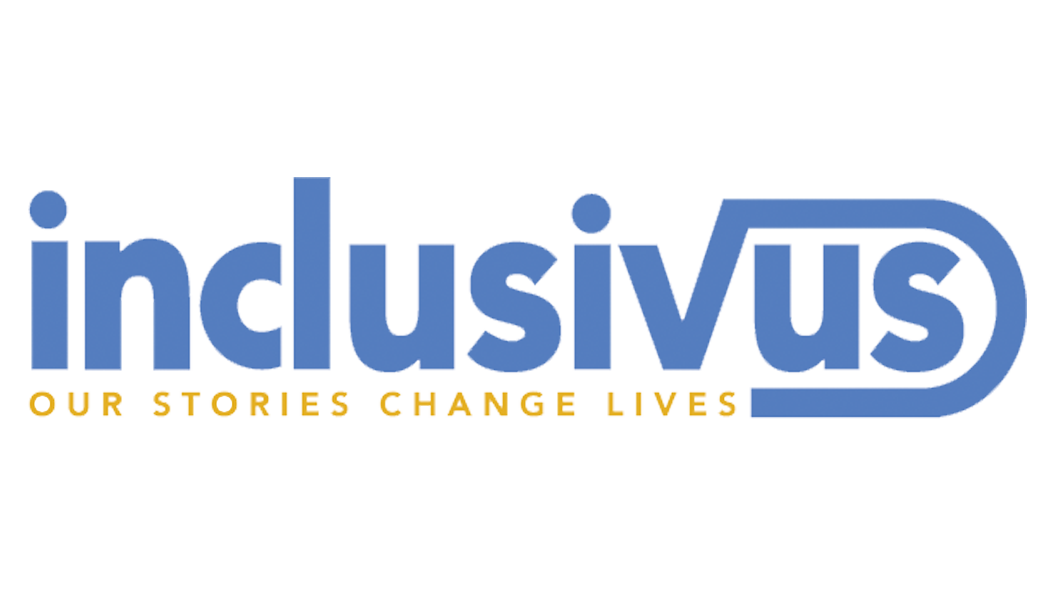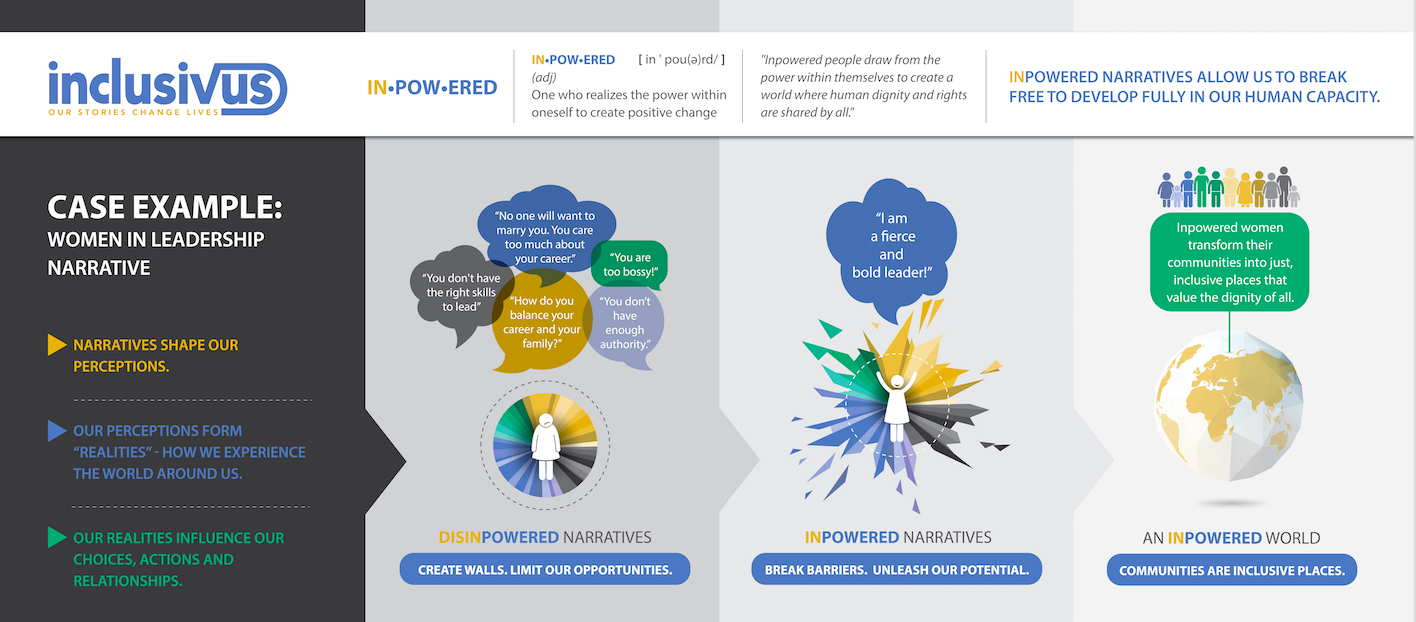The era of positioning only selected advocates as “voices for the voiceless” is over. Now comes the next frontier for social change: Narrative justice.
Why Migration Is the Great Promise: Immigrants from Ireland to Haiti, Italy to El Salvador, and Beyond
The Parallel Men Movement Has Begun!
The Power of Narrative Innovation to Transform Hate into Compassion!
Why the Recognition of our Humanity Is Key to Gender and Racial Justice
Beyond Stories: How to Create True Narrative Transformation
History is much more than a description of past events—it is all the myriad stories that shape our lives, tell us where we come from, who we are, and where we are going. Currently, these stories rest in the hands of a very select few. They rest in the hands of those proclaimed victors, the people who have amassed means and privilege. As long as storytelling remains in the hands of these select few, we will not be able to achieve social justice or progress. We will become more disconnected, and humanity will continue to suffer because we will be failing to tell the true stories.
The Hopelessness Epidemic: What if Harnessing Our Shared Power Is the Solution?
If current events have you feeling hopeless, you certainly are not alone. But this universal experience of hopelessness is more than shared pain; it is a shared challenge. It is a call to all of us to step into our power to change our lives and environments at the personal, communal, national, and international levels.
"Being weak is when you want privilege without responsibilities"
In last week's episode of The Get InPowered Podcast, I spoke with Abenaa Akuamoa-Boatenga the Founder and Executive Director of Women’s Health to Wealth, about her organization work with women, boys, girls to advance gender justice in Ghana. She said something that struck me about privilege: “Being weak is when you want privilege without responsibilities.” I have not stopped thinking about the power and clarity of that statement. If only everyone else understood weakness, privilege, and responsibilities in this way.
We Are All Refugees, Immigrants; Yes You Are and Yes We Are!
The quests for gender equality and social economic justice both have roots in migration. We are all refugees. If we trace our ancestry back just a few generations, most of us will discover that we came from immigrants, especially in the United States.
Now more than ever, we need to tap into our shared histories as immigrants in order to open our hearts and completely empathize with refugees around the world. Only when we fully empathize can we hope to develop sustainable solutions to the refugee crises.
Building Ourselves to Build Sustainable Social Movements
social movements start within us. We have to believe in ourselves and the possibilities for what could be better and then work toward that belief. We have to harness this belief in ourselves and in others, the belief in our own power, and the belief that we are strong individually but even stronger together, collectively.
Why Addressing Our Core Beliefs Is Critical to Equality and Equity
Core beliefs, those unconscious biases that underlie so much of what we do and believe, are roadblocks that make it difficult or impossible for us to advance social change. So we must ask ourselves: How can we change these beliefs and overcome our own biases in order to truly and effectively bring about change?
How Community Branding Affects Social Progress
Countries, just like companies, strategically design brands in order to form public opinions of them. But historically excluded social groups and communities do not have that opportunity, nor do we as a society have the understanding of the need for branding as essential to social progress. Yet still, historically excluded communities, marginalized communities, and indigenous communities are branded—just not by their own design.
What Does It Take to End Racism and Extremism: Reflection from a Dialogue with a Former Neo-Nazi
In last week’s episode of The Get InPowered Podcast, I spoke with Christian Picciolini, an anti-hate activist and author of a nonprofit called Life After Hate.
In conversation with Christian, I was reminded that regardless of our race, our gender, our nationality, or how we perceive ourselves and who we are, we have a common thread that binds us all as human beings: Our common humanity.
Why Narratives Matter for Social Progress
What is the Link Between Human Rights and Architecture Design?
If you’ve never considered human rights and architecture to be so linked, you’re not alone. Most people think architects design buildings and cities, which has no bearing at all on humanity as a whole. But really, what architects truly design are relationships. Buildings and cities are designed for people and they impact how we relate and co-exist.
An Accidental Feminist
Why We Should Avoid Becoming “the Voice of the Voiceless”
By affirming the position of being a voice for the voiceless, we are reaffirming and propagating structures that say certain voices, certain lives, are valued over others. ... In order to truly change the lives of those considered 'voiceless,' we need to let go of the idea and the practice by challenging the concept and practice of voicelessness.
Podcasts: A Vehicle for Social Change
BY JUDITHE REGISTRE
FOUNDER and PODCAst HOST
If you’re familiar with podcasts, you know how moving they can be. You know they can draw you in—not only hold your attention and keep you coming back for more, but they can actually make you a part of the conversation, a part of something bigger. Podcasts are special in this way—they don’t just inform or entertain, they engage.
This podcast pull is well-documented and recognized by major media organizations. Exploring long-form narrative through podcasting is such a proven valuable investment for growth that NPR, a leader in audio content creation via both radio and podcasting, has has seen growth of podcasting year on year by 38 percent. The ability of podcasting to connect with people has proven so relevant that long established media legacy organizations are starting to invest in podcasting, including the New York Times and the Wall Street Journal, among others.
These developments are important for us at Inclusivus, where our main goal is to ensure that communities write and shape their own stores of progress and change. We want to make sure that stories and narratives of social good changemakers (especially for historically excluded communities) are centered and amplified, and we want to be able to communicate these stories, disseminate them widely, and make sure that they have an impact. For this, podcasts are the perfect tool.
Why podcasts are growing in popularity
So what is it about podcasts? What is it that makes them so appealing to so many people, and therefore so valuable to so many companies, organizations, and industry leaders? The answer is three-fold:
- They’re personal
There are few things as poignant as hearing someone’s voice. Sounds are powerful and can literally touch us. Hearing someone speak creates a personal connection to that person—you understand them in an entirely new way.
Podcasts bring this connection into our everyday lives. Listening to podcasts, you hear the voices of people you otherwise might never know, and you come to feel like you truly understand the person on the other side. That understanding is the foundation of empathy, which is a key step toward social change.
- They’re substantive
It’s no secret that many traditional news sources are struggling lately, especially given how technology has transformed content creation and dissemination. Traditional news sources are failing for a number of reasons, the combination of which amounts—among other things—to an inability to hold readers’ interest and trust.
Still, our desire for good news or trustworthy content is as strong as ever, as is our desire for social connection. As readers and consumers of information, we look to the media not only to better our understanding of the world, but for ideas on how to live and act positively within it as citizens. This kind of information needs to come from sources that we trust and relate to.
Podcasts are those sources. Podcasts are not just interesting or entertaining, they are substantive forms of engagement. We have been entertained enough with clickbait headlines—what we need now is in-depth, substantive engagement to make informed decisions as active citizens.
- They’re accessible on demand
The majority of podcast listeners are mobile—meaning they’re listening on the go. As long as you have a smartphone on you, you have access to podcasts. You can listen in your car, on your walk to work, or while you cook. They are available any time, any day.
Social change requires a large audience that whose engagement is ongoing, not momentary. This means that we don’t just need a lot of content, we need content that has a wide reach and can be communicated anywhere. With their huge distribution and accessibility on demand, podcasts are perfect for this.
Podcasts are an incredible tool. Unfortunately, many of us in the social justice field are failing to take advantage of them. This is a huge oversight on our part. It’s time for us in the social justice sphere to jump in and start using podcasts to their full potential. At this time of global political upheaval, the moment is not only relevant—the need is pertinent.
Podcast potential: It’s all about engagement
We live in a time where content creation is queen (or king). But for people working for social change, content creation alone is not enough. There is plenty of information out there already, but content availability does not equal accessibility or engagement.
In the social justice field, our business is to inspire. We need to affect people’s ideas, move hearts, inform minds, and excite new ideas that will lead people to sustained engagement for social good. People need to feel included in building a new understanding and co-creating a more just and equitable society.
So how do we do that? How do we inspire people in a way that will lead to sustained action and engagement through podcasting?
We tell stories.
Podcasts, with their inherent intimacy that pulls you in and includes you without imposing on you, are the perfect way to tell the stories that will get into people’s hearts and minds to start conversations that lead to sustained action. Stories can lead to understanding, respect, and appreciation for our shared humanity.
On The Get InPowered Podcast, we feature raw and relevant stories from women and men who are affecting change in their communities, communities that are often looked at as “marginalized” or distressed (or historically, politically or economically excluded). As these men and women share their stories, they (re)claim the narratives of their communities and shine lights on the tremendous amount of creativity, energy, innovation, and leadership that sit within them. These men and women prove that you do best when you advocate for yourself.
The stories that we feature on The Get InPowered Podcast will spark ideas that listeners will remember and mull over for days. These ideas could become conversations among friends and family members, and those conversations have the potential to influence behaviors. These ideas, these conversations, these changing behaviors—these could ignite new personal passions, and personal passions are the grounds for sustained activism.
What does this mean for social change?
Social change is heavy lifting—we need all the help we can get. And listening to a podcast, unlike reading a magazine or newspaper article, is a relatively low-effort activity with high quality content, which means listeners can save their energy to take action to try something new. (Like starting a movement or simply engaging in our community as good citizens!)
Podcasts bring you the voices and the stories of people you might otherwise never hear and enable connections you might otherwise never experience. Over the course of just one episode of one podcast, you experience countless moments of connection, inspiration, and appreciation. And in those moments, the person on the other side of the line goes from being a nameless, faceless stranger to somebody you feel you know and connect to, somebody who’s right there beside you. In these moments, you go from being a passive bystander to an engaged actor. These are the moments that spark connection that could lead to social change.
The Get InPowered Podcast fosters community through our shared stories and humanity. We understand that effective and sustainable social movements happen in your everyday actions, engagement and over time. We bring you stories and ideas that are transforming communities and the people behind them, so that you can find an inspiration for the change you seek in the world as you find your power, your voice.
For the kind of inclusive change that the world needs, traditional media has not proven effective. The Get InPowered Podcast, on the other hand, has the potential to make up for traditional media’s shortcomings and have a significant, long-term impact. This is important for any and all of us who are committed to serving communities as they write and tell their own stories. But this will require investments to grow a cross-industry and cross-sector podcast audience committed to social justice.
It is well past time for the social development sector to start paying attention to podcasts and investing in their potential to influence social movements. If used properly, podcasts can reinforce our shared humanity by using stories to amplify critical issues that will help advance humanity forward.














